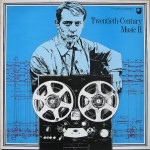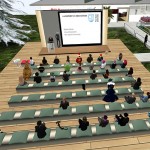Foregrounding the curriculum
Friday, June 11th, 2010Alan Tait, as well as being Pro-Vice-Chancellor (Curriculum and Awards) at the OU is also president of EDEN – the European Distance and E-Learning Network.
Here he notes that that ‘very few universities have a Pro-Vice Chancellor for Curriculum; in fact it is accurate to say that I have never come across another one! In fact the term curriculum in the sense of an overall view of what subjects a university teaches only came into common parlance in the UK perhaps 10 years ago (and was recognized in a book by David Watson and Jean Bocock ‘Managing the University Curriculum: Making Common Cause’). Up till then what universities taught was taken more as an unexamined issue: it was what academics wanted to teach and what the university agreed they could. The Open University however, as a mission-led university with a strong research identity has had a PVC Curriculum for some 20 years. This indicates the ways in which we have tried to deconstruct the curriculum from being a natural phenomenon to one that is constructed to meet audience needs, aligned of course with the University’s teaching priorities, external regulation from professional and other bodies, and the views of the academic community.’

